La conférence Coworking Africa, le 1er événement organisé en Afrique sur la thématique du coworking, se tiendra au Cap, en Afrique du Sud, les 23 et 24 juillet 2015. 
Le coworking est un concept d’espace de travail mutualisé qui monte en puissance partout dans le monde. Plutôt que de payer un loyer, comme dans un bureau classique, les utilisateurs paient un abonnement correspondant à la durée d’utilisation de l’espace.
Le modèle est particulièrement adapté pour les travailleurs indépendants, les entrepreneurs et les startups qui peuvent ainsi partager les coûts d’accès à une infrastructure de qualité, dans laquelle ils ont accès une connexion internet partagée.
Grâce à la mise en commun de l’infrastructure, les espaces de coworking deviennent le lieu de fixation de communautés dynamiques d’entrepreneurs et de travailleurs qualifiés. Désormais, beaucoup hébergent des programmes d’accélération de startups et structurent les écosystèmes créatifs dans les villes ou régions où ils se trouvent.
L’Afrique prête pour un essor rapide du coworking 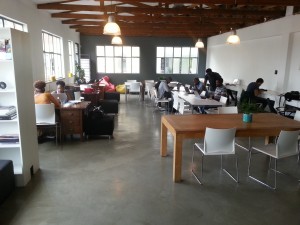
Plus de 5.800 espaces de coworking sont aujourd’hui recensés dans le monde. Le nombre double chaque année.
Si l’Europe et les Etats-Unis sont à ce jour leaders, le coworking connaît aujourd’hui un essor rapide en Afrique également. Cette évolution est alimentée, entre autres, par le développement récent de communautés d’entrepreneurs digitaux dans de nombreux pays africains, par l’amélioration progressive de l’accès à internet haut débit ou encore par la croissance démographique qui fait de l’Afrique la population la plus jeune du globe. Partout, les espaces de coworking deviennent les lieux privilégiés d’où démarrent la plupart des nouveaux projets de startups. L’Afrique ne fait pas exception.
La conférence Coworking Africa 2015 entend réunir plus d’une centaine de participants d’Afrique et d’ailleurs.
La première conférence africaine sur le Coworking, vise à créer des liens et des échanges entre opérateurs d’espaces. Coworking Africa 2015 s’adresse aux gestionnaires d’espaces de coworking, aux porteurs de projets d’espace de coworking, mais aussi aux représentants d’organisations publiques, aux gestionnaires d’incubateurs d’innovation, de programmes de mentorat, d’accélération de startups, aux organisation non gouvernementales, aux fondations, ou encore aux entreprises liées ou pas aux mondes digitaux…
Les organisateurs de cette première conférence africaine sur le coworking ont l’espoir que l’initiative tissera des premiers liens durables entre les opérateurs d’espaces de coworking africains et qu’elle fera connaître l’impact positif que le développement de l’offre coworking peut avoir en l’Afrique. La conférence a aussi pour objectif de faire apparaître la communauté coworking d’Afrique sur la carte du coworking au niveau mondial
Plus de détails sur le programme et les orateurs : www.coworkignafrica.com
Organisation :
Coworking Africa 2015 est le fruit d’un partenariat entre Global Enterprise et Cape Town Office.
Global Enterprise est l’initiateur de la conférence Coworking Europe conference. La dernière édition, tenue à Lisbonne, avait réunii plus de 320 participants issus de 40 pays différents. Coworking Europe collabore étroitement avec GCUC, organisateur de la conférence américaine sur le coworking, et associés aux événements similaires en Australie et au Canada.
Cape Town Office, fondé par Lizelle van Rhyn, est l’un des pionniers du coworking en Afrique du Sud. L’espace est située au Cap.
Lieu et dates:
23 et 24 juillet 2015
East Studio (62 Roeland Street. Le Cap, Afrique du Sud)
Inscription :
http://coworkingafrica.com/book-now/
Accreditation média : vanessa@coworkingafrica.com
Suivez-nous sur les réseaux sociaux:
https://www.facebook.com/CoworkingAfrica
Twitter : @CoworkingAfrica
Contact :
Jean-Yves Huwart Vanessa Sans Lizelle Van Rhyn (au Cap)
jy.@coworkingafrica.com vanessa@coworkingafrica.com lizelle@capetownoffice.com
T
[1] Deskmag Global Coworking Survey 2014
Last week, the prestigious british weekly The Economist issued an article on the rapid expansion of coworking in Africa.

JoziHub, Johannesburg
« While coworking spaces are heralded in the rich world as trendy, open spaces conducive to networking and brainstorming, in Africa they serve a far more practical purpose: coworking spaces mitigate the exorbitant costs of setting up and running an office », writes the magazine.
This is indeed a statement that we share, as coworking Africa conference’s organizers. Maybe, nowhere in the world is coworking more important than in Africa to let the middle class of digital savvy workers, freelancers and entrepreneurs rise up.
In 2014, Luanda (Angola) and N’Djamena (Chad), according to Forbes magazine, were the most expensive cities in the world with respect to the cost of living, ahead of Tokyo, London or Geneva. Victoria (in the Seychelles Islands) Libreville (Gabon) and Kinshasa (DRC) are also in the top 20 of the worlds most expensive cities as well.
The lack of proper infrastructures added to a rapid economical growth feeding demand for good quality offices, lands and goods, is an explanation of the rising disconnection between the average revenue per person in Africa and the cost of living in major cities.
Although too slowly, as opposed to other emerging areas, education in many African countries is improving. So is internet access and digital services provision. As more than 50% of the African population is under 20 years old, a huge skilled workforce is arising which will need places, convenient work environments, connectivity, meeting areas, informal learning and networking opportunities… The challenge is enormous.
Here comes coworking.
Mutualized community based infrastructures such as coworking spaces can provide them with a more affordable solution compared to what they are charged for an isolated office. In addition, coworking allows to split the cost of a generator or of a bandwidth capacity, a critical point in Africa, where power outages and bandwidth scarcity might impede the development of new businesses.
This is the reason why coworking could emerge as a must for modern digital and creative professionals in Africa as it does in Hong Kong, London, Paris, Barcelona or New York City.
As a matter of fact, these cities are steadily transforming themselves into coworking villages. Coworking has been acknowledged as one of the workplace models of the 21st century, where values such as positive social interactions, openness and serendipity are gaining ground.
As far as we are, though, in Africa, the growth of coworking spaces is mainly fueled by the mushrooming of tech hubs all over the continent.
According to the World Bank, close to 100 tech hubs are in operation across Africa. Have a look at this map of African tech hubs produced by Fab Foundation and Bongo Hive, in Zambia.
Thanks to these tech hub communities, Lagos, Nairobi, Cape Town and more are giving birth to a breed of great startups, in the mobile and web industries.
But what are Tech Hubs if not « dedicated coworking spaces » ?
This new tech hub IBM plans to open up soon in Johannesburg, for instance, will be built around a coworking space. So is KLab, in Kigali, and many more we could mention.
So, community based tech hubs are definitely part of the coworking family.
Industry wise, coworking spaces are sprouting in many different fields. The international network Impact Hub for instance, devoted to social entrepreneurs, has wide ambitions in Africa, with spaces soon to be opened in more than ten African countries, like here below in Accra.
Impact Hub Accra from John-Paul Parmigiani on Vimeo.
Coworking spaces put themselves also at crossroads. Between artists, designers and digital entrepreneurs, for instance. Take BongoHive, in Zambia.
« BongoHive is building connections between its new community and other communities, illustrates this blog supported by Cisco. It is now working with Zambian artists and photographers to build websites for them to showcase and sell their work. »
Vertically (focused) or horizontally (general) oriented, business or social minded, coworking spaces are blossoming in every directions in Africa, as it is elsewhere in the world. That said, whether they are tech hubs, vertically focused or stand alone spaces open to digitally enabled professionals, a coworking boom in a city is the evidence of a healthy growing ecosystem dynamic.
Startups and companies need skilled and creative workers, business savvy individuals, HR, law and marketing experts, around them to fuel their development. Coders are not enough.
From that perspective, Africa is not different than any other continent : the more coworking spaces communities you have, the better off your country will be !
Jean-Yves Huwart
Initiator of the Coworking Europe and Coworking Africa conferences
Karim Sy, founder of Jokkolabs, will be a speaker at the Coworking Africa 2015 in Cape Town.
Avec Jokkolabs, Karim Sy parie sur le « co-working » par Jeuneafriquetv
With time, coworking is growing as the global mega-trend ones expected it would once become.
In some cities, in 2014, the coworking population exceeds a hundred. And far from slowing down, the unfolding of the coworking landscape seems to be accelerating. In some metropoles, coworking is covering the whole urban map.
Have a look at some of those megapoles. We could have added many more examples.
London is getting closer to a 100 coworking spaces threshold according to CoworkingLondon. The figures are confirmed, in a way, by Gocowo, another Londonese coworking spaces directory.
According to La Fonderie-IDF, the organizing partner of the Coworking Europe conference in 2012, 66 coworking spaces are in operation, nowadays, in the French capital city. The digital agency of Paris-Ile de France is confident that Paris will soon be in a position to claim more than 100 operating coworking spaces.
One of the bedrock of Coworking in Europe, Berlin has seen coworking spaces blossoming everywhere in the city. Dozens are now open and running, confirms Projektzukunft Berlin.
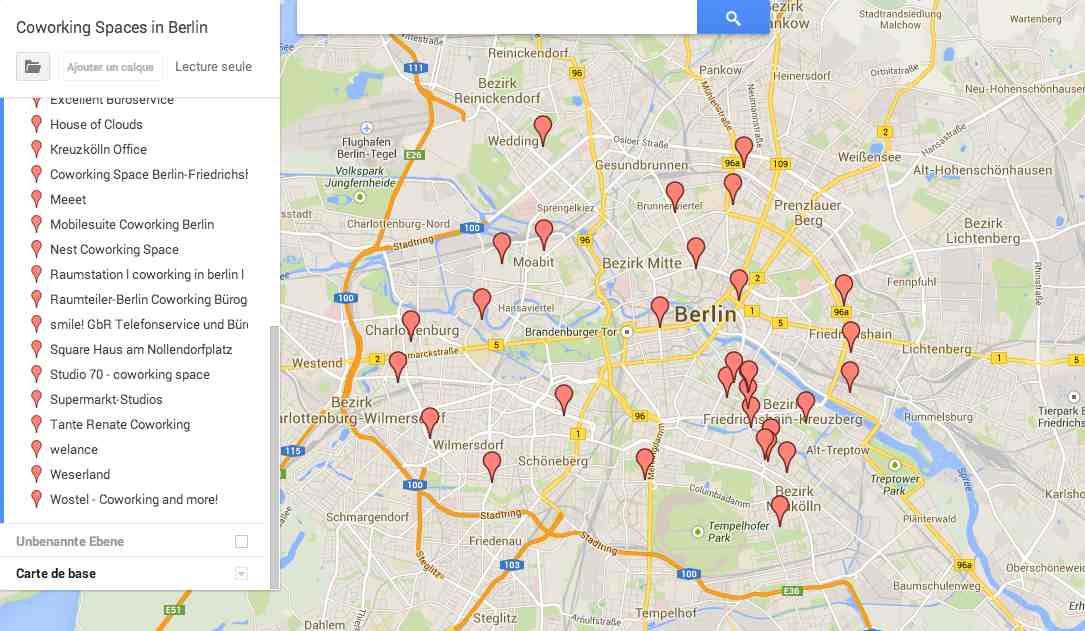
Spain being the number 1 coworking country in Europe, it’s no accident that Barcelona is nowadays the metropole with the highest coworking spaces density in the world. A big deal of the more than 100 spaces Barcelona has now pop on this map produced by Coworking Spain.
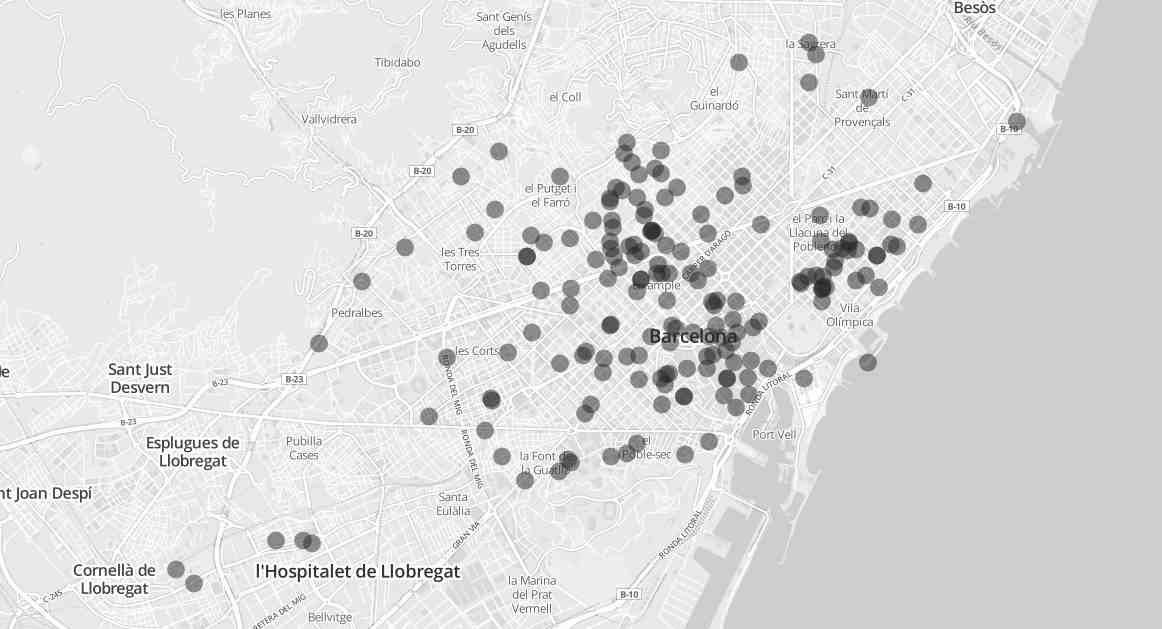
As for Barcelona, Madrid seems to be experiencing a coworking boom which should have, no doubt, an impact on the unfolding entrepreneurial and creative energy of the city (source of the map : Coworking Spain).
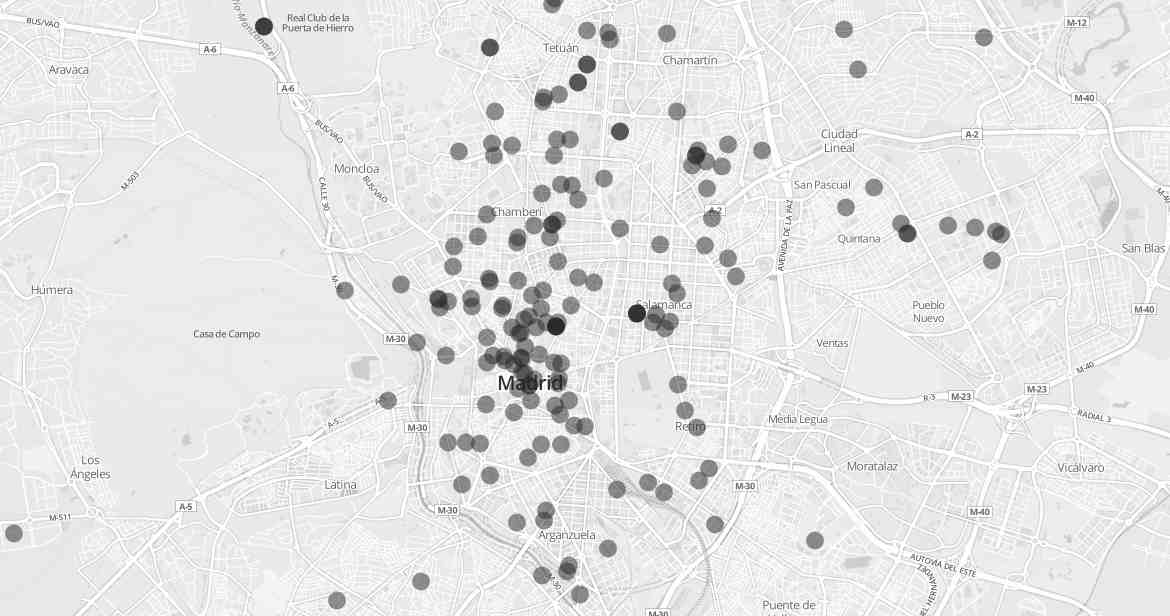
Outside Europe, New York City is obviously another unmissable world coworking hotspot. According to WNYC, dozens of coworking spaces are in operation all across the megapole. Behind those walls, the future of the 21st century digital/sustainable/distributed economy is taking shape.
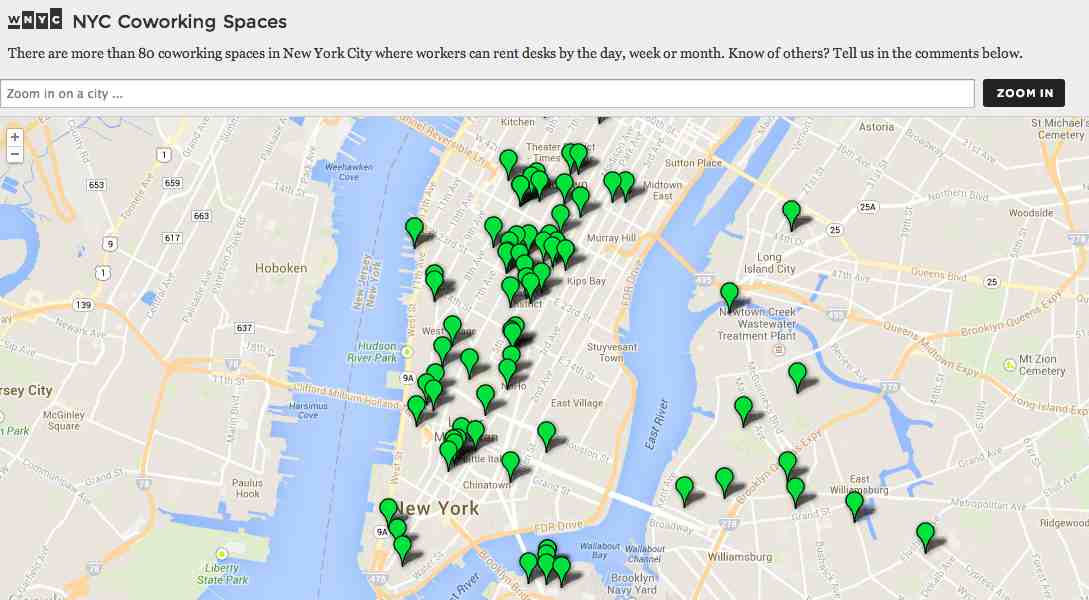
Looking at the Global Coworking Map or any other regularly updated Coworking directory that are now available online, it’s becoming harder to find a coworking space-free area outside low human density territories like Amazonia, Sahara or Siberia.
Coworking is covering up more and more regions and cities all around the globe. Although Europe and North America are still ahead of the move, Asia, Africa or, mostly, Latin America, are experiencing what could become soon a boom of coworking spaces in their respective urban centers.
No more New York, Berlin, London or Madrid as the only coworking friendly cities on the planet. Time has come to add Reykjavik, Yangon, Yerevan, Addis Ababa or even Peshawar to the list.
With four new coworking spaces opening up, on average, every day somewhere on the planet, no surprise to see Armenia, Cameroon, Guatemala, Pakistan and more widely embracing the coworking move forward.
Some of these initiatives are supported by foreign outsiders (investor or NGO’s). Others are home grown.
For most of them, a coworking space is the bedrock on which a local breed of digital globally connected entrepreneurs can and will germinate, paving the way for the companies and skilled jobs of tomorrow. Many operate as local embassies of the shared economy on the local level, as regional platform to host standardized inspiring format such as TEDx, Startup Weekend and connect, by doing so, to the rest of the world.
Almost all of them want to support the development of an ecosystem of entrepreneurs and freelancers, likewise in Europe or in North America.
Here is a list of ten of those new Coworking destinations :
Reykjavik Coworking, Reykjavik, Iceland
UtopianLab, Yerevan, Armenia
Ice Addis, Addis Ababa, Ethiopia
Hub Dhaka, Dhaka, Bangladesh
Hubud, Bali, Indonesia
Basecamp, Peshawar, Pakistan
TEDxPeshawar – Amir Anzur from Webpreneur Academy on Vimeo.
ActivSpaces, Douala, Cameroon
Project Hub Yangon, Yangon, Myanmar
Angkor Hub, Angkor, Cambodia
Take aways frome the Coworking Europe 2012
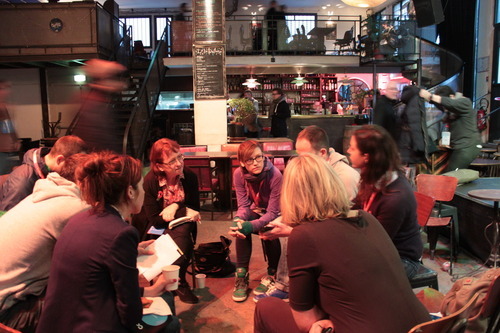
Within this conference, different viewpoints from different regions were observed. Within France, coworking is continuing to grow but there is a strong need to become more international while cooperating and sharing spaces more efficiently.
Within Canada, coworker leader Ashley described her efforts in Toronto. Volunteers and individualistic projects are done on ones own initiative. Also, health and benefits programs have been created to protect the rights of the coworkers. In addition, coworking passports have been created to enable individuals to travel to various locations, being able to work in different environments.
The Manifesto of Coworking and the coworking visa programs are ways to further the progress of coworking. One of the most important values of coworking is the idea of successfully working together. Having a reliable structure and a legitimate set of rules helps regulate the programs. Exchange platforms are also extremely important. By choosing different projects and having the ability to host coworkers, ideas are more easily shared and relationships are successfully built through bonding. Unfortunately, many locations face their own problems. Some places are lacking time while other places lack the ability to distribute information and retain resources.
2020 is a future project for the coworking community. The main goals are continuing to discover great ideas and also to foster creative industries.
Via http://coworking.lafonderie-idf.fr/
Posted by carolevignaud
Barcelona is on the verge of becoming the city with the highest Coworking spaces density in the world.
According to representatives of the local Coworking scene, more than 100 spaces are already in operation across the Catalonia capital city.
Some spaces are big (MOB, CREC, Valkiria Hub Space,…). Some spaces are smaller. More are anyway to come (Utopic_Us Barcelona, Bethaus Bercelona…)
Nowadays, Coworking is part of the urban landscape in Barcelona. To say the least…
While walking around the city, one will observe that Coworking spaces popping up literally at every street corner. 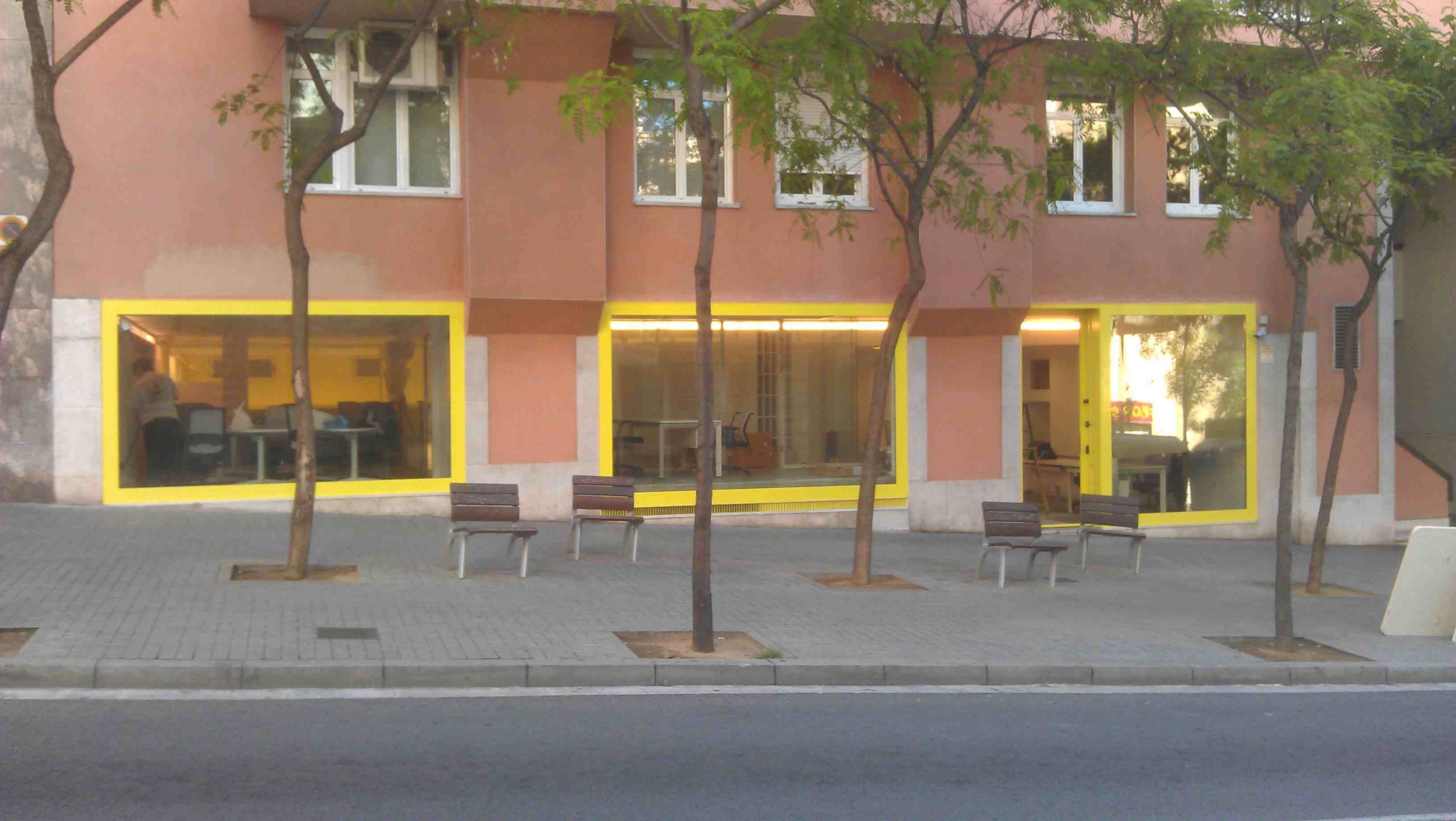
The Barcelona Coworking boom is fueled by the crisis situation that Spain is facing. A lot of dynamic graduated an experience knowledge workers have no other choices than start up a company or create their own job. To join a Coworking space is the obvious first step for many in this breed of entrepreneurs and freelancers, boosting accordingly the demand for more seats.
Barcelona will definitely be the Coworking capital of Europe in 2013.
Last week, the Coworking Spain Conference 2013 has gathered more than 220 attendees in Barcelona. The event was a huge success.
And next fall (11-13 november), the Coworking Europe Conference 2013 will be hosted in the Catalonia capital. More than 300 attendees are expected, form more than 30 countries in Europe and beyond.
The Early bird registration is open here
Don’t wait too long. The number of available is tickets is limited